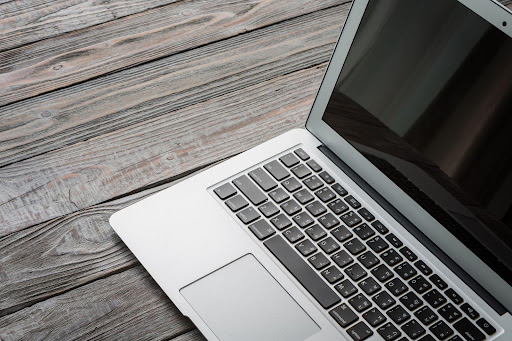Owning a reliable laptop is no longer a luxury, it’s a necessity. From students attending virtual classes to professionals managing remote work, laptops have become essential tools for productivity. However, buying a brand-new device isn’t always financially practical. That’s where refurbished laptop computers come in as a cost-effective and sustainable solution. These devices offer the same performance and quality as new ones, often at a fraction of the price.
However, before clicking “buy now,” it’s essential to understand what makes a refurbished laptop a worthwhile investment. Many buyers overlook key factors such as warranty, hardware condition, and seller credibility.
Below are the practical insights to help you make an informed decision, ensuring that your next purchase strikes the perfect balance between performance, reliability, and affordability.
1. Understanding What “Refurbished” Really Means
Before exploring deals or comparing prices, it’s essential to understand what “refurbished” actually implies. A refurbished laptop isn’t just a used product; it’s a pre-owned device that has been professionally inspected, tested, and restored to meet specific quality standards. These laptops may have been returned due to minor defects, cosmetic issues, or simply because a buyer changed their mind.
Certified refurbishment involves thorough hardware testing, software reinstallation, and component replacement if necessary. The result is a device that performs like new but costs significantly less. Many reputable retailers even offer limited warranties, adding an extra layer of trust.
Understanding this distinction helps buyers appreciate the actual value of refurbished products. You’re not just buying second-hand hardware; you’re choosing a sustainable, high-performance alternative that contributes to reducing electronic waste and promotes smarter consumer habits.
2. Key Factors to Check Before Making a Purchase
When buying refurbished computers, it’s easy to get swayed by attractive prices or flashy listings.
Here are some essential factors every buyer should review before finalizing their decision:
- Check Core Specifications Thoroughly
Always begin by reviewing the laptop’s processor, RAM, and storage capacity. These components determine overall performance and longevity. Choosing the right balance between speed and storage ensures smooth multitasking and better value for money.
- Understand the Condition Grade
Refurbished laptops are often categorized as Grade A, B, or C based on their physical condition. Grade A units typically appear almost new, while Grade B or C units may exhibit minor wear without compromising performance. Knowing this helps you set realistic expectations for appearance and price.
- Verify Diagnostic Testing and Quality Assurance
Ensure that the device has undergone complete diagnostic testing before sale. Reliable sellers test hardware, battery, and performance to confirm stability. This step guarantees that the laptop functions properly and reduces the risk of technical issues later.
- Confirm Warranty and Return Policies
A trustworthy refurbished laptop should come with a clear return or replacement policy. Warranty coverage reflects the seller’s confidence in product quality. Always read the fine print to understand what is covered and for how long.
- Check the Operating System Authenticity
Confirm that the laptop comes with a licensed and up-to-date operating system. A genuine OS ensures better security, compatibility, and access to regular updates. Avoid devices with outdated or pirated software to prevent future system issues.
3. Why Second-Hand Laptops Make Financial and Environmental Sense
Choosing second-hand laptops is not only a financially wise move but also an environmentally responsible one. Refurbished and pre-owned laptops offer the opportunity to enjoy premium brands and models at reduced costs without compromising performance. Whether you need a high-end workstation or a simple notebook for everyday tasks, these devices offer excellent value for money.
From a sustainability perspective, reusing laptops significantly reduces electronic waste, a growing global concern. Each refurbished device prevents potentially harmful components from being sent to landfills. Moreover, producing new electronics consumes vast amounts of energy and resources; buying refurbished reduces that demand.
This wise choice enables buyers to strike a balance between quality, price, and sustainability. You save money while contributing to a greener planet; a win-win for both your budget and the environment.
4. Common Mistakes to Avoid When Buying Refurbished Devices
While refurbished laptops offer significant advantages, certain pitfalls can turn a good deal into a poor investment. The first mistake is purchasing from unverified sellers who offer unrealistic discounts or vague product details. Authentic sellers are transparent about the laptop’s history, refurbishment process, and warranty coverage.
Another mistake is ignoring battery life and upgradability. Some older models may have limited battery performance or outdated components that cannot be upgraded. Verify whether the device supports memory or storage expansion to ensure future-proofing your purchase.
Lastly, avoid skipping warranty and return policy details. A reliable refurbished device should come with at least a short-term warranty to ensure performance stability. Reading customer reviews and confirming after-sales support can further safeguard your investment.
5. How to Find Reliable and Affordable Electronics Online
When searching for affordable electronics online, reputation and transparency should guide your decision. Look for certified refurbishment programs or authorized resellers that clearly state testing procedures and warranty policies. These sellers typically provide detailed product descriptions, genuine software licenses, and customer service support.
Before purchasing, compare prices across multiple platforms to ensure you’re getting the best possible deal. Avoid offers that seem too good to be true, as they often involve compromised quality or hidden fees.
Additionally, confirm that secure payment gateways and encryption protocols are in place before sharing your personal details. A little caution during your online shopping journey can go a long way in ensuring both safety and satisfaction.
Conclusion:
Buying refurbished laptops isn’t just about saving money; it’s about making informed choices that strike a balance between performance, cost, and sustainability. By understanding what refurbished really means, checking essential specifications, and avoiding common mistakes, you can enjoy top-tier performance at a fraction of the price.
If you’re ready to upgrade smartly and sustainably, explore AsNew for an exceptional range of refurbished laptops and premium electronic devices. With verified quality, fair pricing, and a focus on customer trust, the brand ensures a reliable and rewarding shopping experience every time.
